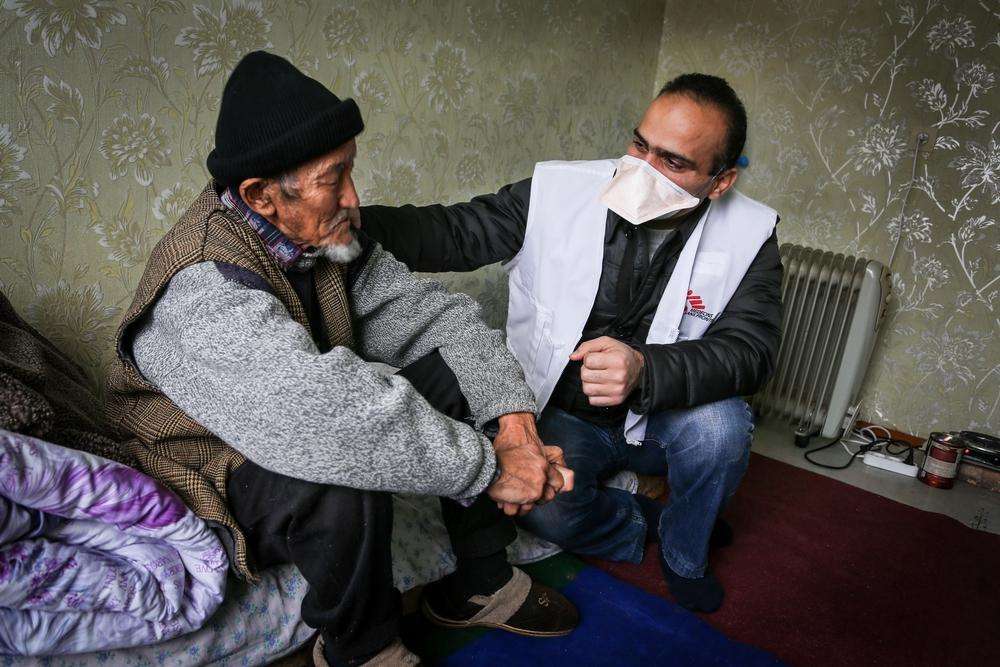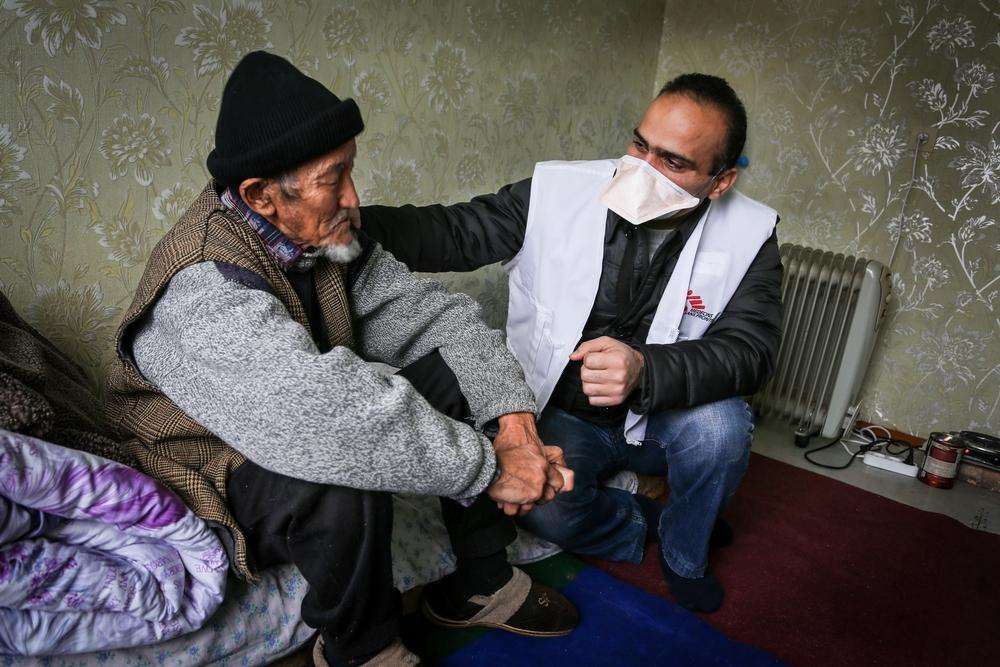PARIS/BOSTON/DUBAI—International organizations Partners In Health (PIH), Doctors Without Borders/Médecins Sans Frontières (MSF), Interactive Research and Development (IRD), and their financial partner UNITAID announced the endTB project today, a partnership to begin in April aimed at radically changing the management of multidrug-resistant tuberculosis (MDR-TB).
By 2019, endTB will provide access to two new anti-TB drugs (bedaquiline and delamanid), for 2,600 MDR-TB patients in 16 countries. These are the first new anti-TB drugs developed in over 50 years and these drugs offer new hope to patients suffering from MDR-TB. endTB will use the new anti-TB drugs according to World Health Organization (WHO) recommendations in a closely monitored group of patients. And an innovative endTB clinical trial will test completely novel MDR-TB treatment regimens in 600 more MDR-TB patients. The shorter, more user-friendly regimens being tested will be nothing short of revolutionary if they are found to be safe and effective.
Although approved for treatment of MDR-TB for more than a year, the two drugs have scarcely been used. Access to the new drugs in countries with high burdens of MDR-TB has been almost exclusively through compassionate use programs, requiring a case-by-case authorization from the manufacturer for patients with no other treatment options.
As of today, it is estimated that fewer than 1,000 patients have received bedaquiline. Although delamanid is provided through compassionate use, it has yet to reach more than a handful of patients. endTB, however, will lay the groundwork for appropriate delivery of these drugs to hundreds of thousands of patients suffering from MDR-TB.
"The main obstacle today is that there is limited knowledge about these drugs," said Dr. Aamir Khan, endTB project leader at IRD. "Many of the countries where the patients in need live are not in the position to provide the enhanced safety monitoring that is still needed for their use. Also, in most of these countries bedaquiline and delamanid are not licensed. And even in countries where they are registered, drug procurement mechanisms are today extremely long and complicated.”
Current treatment for tuberculosis (TB) consists of six months on a cocktail of various antibiotics. MDR-TB is defined as the resistance of the TB bacterium to at least the two most powerful first-line antibiotics, rifampicin and isoniazid. The extreme form of MDR-TB, known as extensively drug resistant TB (XDR-TB), occurs when resistance appears to second-line drugs too.
Out of the estimated 500,000 people that develop MDR-TB every year, about 10 percent are XDR-TB. Currently, there are very few drugs with good efficacy for these patients; the drugs have to be combined in treatments that last up to two years, with severe side effects and only 50 percent success rate for MDR-TB overall—less than 20 percent for XDR-TB.
"We see every day how long, painful, and ineffective the current treatments for DR-TB patients are," said Dr. Michael Rich, endTB project leader at PIH. “For decades, we have been running after the disease, waiting for new tools to fight it. Today we have a chance to get the upper hand on TB. But in order to do so, we have to act quickly and set the framework for the optimal and effective use of these new drugs."
In countries where bedaquiline has been provided to XDR-TB patients through compassionate use, outcomes are extremely encouraging. In Armenia, for instance, after six months of treatment in an MSF-supported program, the TB bacillus was eliminated from the sputum of 85 percent of patients.
"These drugs bring a renewed hope for patients, and for caregivers," said Dr. Francis Varaine, endTB project leader in MSF. "But drugs alone are a half-victory. We need to gather more evidence on the safety, the efficacy, and the effectiveness of those drugs when they are combined with other drugs, as well as the ideal length of the treatment and the associated side effects, amongst others parameters. Only then we will really be able to change the game in the fight against MDR-TB."
"This project will help make MDR-TB treatment more effective and easier-to-bear, thereby helping to halt the disease’s spread," said Lelio Marmora, executive director of UNITAID. "This new investment is part of our broader portfolio that introduces innovations for a more effective global TB response. These new medicines to treat drug resistant TB are so urgently needed, in part due to the success in recent years in detecting cases, with a three-fold increase since 2009."





